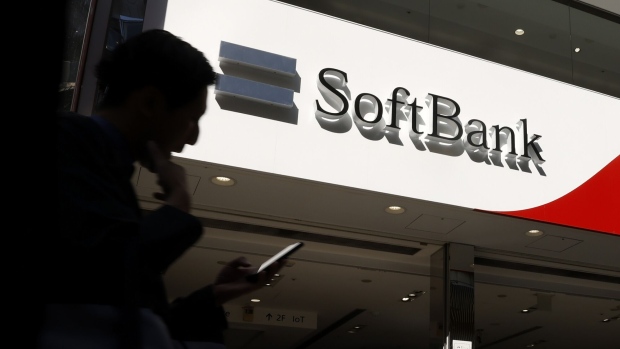Nov 15, 2023
Busted Social-Media Darling IRL’s Founder Sues Softbank Unit
, Bloomberg News

(Bloomberg) -- A co-founder of the shuttered social-media startup IRL is suing directors and investing units of the business, claiming they wrongfully rushed to close it to protect their reputations.
IRL, or In Real Life, was shut down in June after a board probe found that robot accounts made up 95% of the platform’s customer base. The directors represented investing units of Softbank Group Corp. and other investors in the startup, once valued at $1.1 billion, according to court filings.
IRL co-founder and former Chief Executive Officer Abraham Shafi alleges in the lawsuit, filed Wednesday in Delaware Chancery Court, that the directors had evidence contradicting a consulting firm’s findings about the group-chat app’s lack of human users. Shafi claims the board, which removed him as CEO, lied about the reasons for closing the site to pin its collapse on him and safeguard their names in the venture capital community.
“Why would investors who had collectively invested nearly $200 million into the company over several years promote this horribly damaging lie, and use it to justify hastily shutting down a company with $40 million cash on hand?” Shafi asked in the complaint. “They needed a scapegoat. Badly.”
Former IRL directors Serena Dayal of Softbank’s SB Investment Advisers, Chi-Hua Chien of Goodwater Capital and Mike Maples of Floodgate Fund didn’t immediately return emails seeking comment on the suit. A spokesman for Tokyo-based Softbank declined to comment.
Tech Trend
The suit follows a complaint, in federal court in California, that two of Softbank’s funds filed in August accusing Shafi of fraud, saying he fabricated the number of users of IRL, also known as Get Together. According to that suit, Shafi falsely said the app had been downloaded by 25% of US teenagers and had 12 million monthly users.
IRL’s fate and the litigation over it once again raise questions about the reliability of user numbers in the tech world. Such data have been the centerpiece in several recent high-profile legal disputes.
Those included Elon Musk’s failed effort to walk away from his $44 billion offer to buy the social-media platform Twitter, now known as X. Musk claimed Twitter officials lied about how much of the platform’s customer base was made up of robot accounts in order to pump up user numbers and charge advertisers more.
In another such fight, JPMorgan Chase & Co. claims it was defrauded in 2021 when it paid $175 million to buy a college financial-planning site set up by entrepreneur Charlie Javice. The bank sued, saying its post-acquisition probe found Javice faked user numbers as part of the deal. She is also facing federal criminal-fraud charges over the transaction and has pleaded not guilty.
Tech in Person
Shafi co-founded IRL in 2016 as an app to encourage users to meet in person. He has said he wants to bring more intimacy to the internet. To back IRL, Softbank’s Vision Fund 2 led a $170 million funding round in 2021. In the California suit, officials of Softbank units that lined up behind IRL said they were seeking to recoup a $150 million investment.
Shafi says in the suit that IRL hired a law firm and consultants to probe former employees’ claims that its customer base was made up almost entirely by bots. The US Securities and Exchange Commission also was investigating the allegations, according to the suit.
The law firm Faegre Drinker Biddle & Reath LLP investigated the claims and reported to directors earlier this year that “concerns about a significant bot problem on IRL’s platform were unfounded,” according to Shafi.
The site’s vice president of engineering also assured directors IRL was addressing problems with bot accounts that plague many social-media sites, Shafi says in his complaint. The executive told the board the company “had invested substantial resources into successfully uncovering and removing bots from the platform and did not have a significant bot problem.”
But after the consultancy cast doubt on the data and its report was made public, the investors’ board designees pushed to shut down the platform and distribute the remaining $40 million in cash among the backers, Shafi says.
“IRL was just one of many companies in each of their funds’ portfolios, so they chose to cut their monetary losses, torch Shafi, do their best to bury the truth, and take the company’s remaining value largely for themselves,” according to the suit.
The case is Shafi v. Chien, 2023-1157, Delaware Chancery Court (Wilmington).
--With assistance from Mark Bergen.
(Adds outcome of efforts to reach defendants in first section and detail on Shafi in third.)
©2023 Bloomberg L.P.





